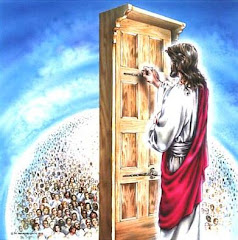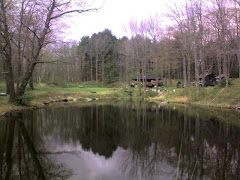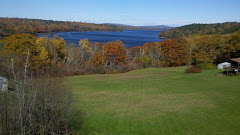Question:
D.R. asks:
I've been studying this verse and would like the opinion of others. Specifically, what does it mean to be partakers of the divine nature?
"For by these He has granted to us His precious and magnificent promises, so that by them you may become partakers of the divine nature, having escaped the corruption that is in the world by lust." 2Peter1:4
Answer
In this passage, Peter uses "divine nature" in the context of increased Godliness that goes on in our hearts like a seed that bears fruit. That is why we see in the previous verse that the grace and peace a believer receives when he receives the gospel is to be abounding in us. And so we see in the following verses that saving faith is just the beginning---having added to it holiness (i.e. less and less sin) and righteousness (more and more love) (1:5-7).
Peter, John and James all describe this growth as a flourishing of God's seed in us (a.k.a. His word), with the Holy Spirit mostly in the white spaces. And since this growth can only occur in blood washed hearts, the epistles, each in their own way, agree that:
divine nature = Word + Spirit + Blood
or as Paul calls it in 2 Cor. 4:7 "this treasure in earthen vessels."
For God, who said, "Light shall shine out of darkness," is the One who has shone in our hearts to give the Light of the knowledge of the glory of God in the face of Christ. But we have this treasure in earthen vessels, so that the surpassing greatness of the power will be of God and not from ourselves; 2Cor. 4:7-8
All three ingredients of the divine nature are given to us in and through Christ---the flourishing being the fruit of Christlikeness.
Steve
Sunday, September 26, 2010
Tuesday, August 3, 2010
Jesus fulfills the law so we can live?
Q.
Iak asks:
Here Jesus being man e.g flesh, and according to some died to fulfill the law, doing a work of the law. If the case is that in order for mankind to be saved through Jesus Christ he had to finish the works of the Law, fulfilling the law, how is it anyone is justified since no flesh will be justified by works of the law?
"because by the works of the Law none of all flesh will be justified in His sight; for through the Law is the knowledge of sin. But now a righteousness of God has been revealed apart from Law, being witnessed by the Law and the Prophets" Rom. 3:20-21
A.
Flesh could not do God's law so God's law did the flesh (i.e. the Word was made flesh)
"For what the law could not do, in that it was weak through the flesh, God sending his own Son in the likeness of sinful flesh, and for sin, condemned sin in the flesh Rom." 8:3
So that whosoever will receive Him receives the cancellation of debt for being transgressors of God's law:
"When you were dead in your transgressions and the uncircumcision of your flesh, He made you alive together with Him, having forgiven us all our transgressions having canceled out the certificate of debt consisting of decrees against us, which was hostile to us; and He has taken it out of the way, having nailed it to the cross." Col. 2:13-14
And power to engage God's word (aka righteousness) with an increasing measure of freedom from the desires of the flesh---it now being circumcised.
"That the righteousness of the law might be fulfilled in us, who walk not after the flesh, but after the Spirit." Rom 8:4
Iak asks:
Here Jesus being man e.g flesh, and according to some died to fulfill the law, doing a work of the law. If the case is that in order for mankind to be saved through Jesus Christ he had to finish the works of the Law, fulfilling the law, how is it anyone is justified since no flesh will be justified by works of the law?
"because by the works of the Law none of all flesh will be justified in His sight; for through the Law is the knowledge of sin. But now a righteousness of God has been revealed apart from Law, being witnessed by the Law and the Prophets" Rom. 3:20-21
A.
Flesh could not do God's law so God's law did the flesh (i.e. the Word was made flesh)
"For what the law could not do, in that it was weak through the flesh, God sending his own Son in the likeness of sinful flesh, and for sin, condemned sin in the flesh Rom." 8:3
So that whosoever will receive Him receives the cancellation of debt for being transgressors of God's law:
"When you were dead in your transgressions and the uncircumcision of your flesh, He made you alive together with Him, having forgiven us all our transgressions having canceled out the certificate of debt consisting of decrees against us, which was hostile to us; and He has taken it out of the way, having nailed it to the cross." Col. 2:13-14
And power to engage God's word (aka righteousness) with an increasing measure of freedom from the desires of the flesh---it now being circumcised.
"That the righteousness of the law might be fulfilled in us, who walk not after the flesh, but after the Spirit." Rom 8:4
Steve
Saturday, July 10, 2010
Apostasy and Hebrews 6
Q.
TM asks:
I'm interested in learning more about Hebrews 6 and the various interpretations of it given in contemporary and historical contexts.
"It is impossible for those who have once been enlightened, who have tasted the heavenly gift, who have shared in the Holy Spirit, who have tasted the goodness of the word of God and the powers of the coming age, if they fall away, to be brought back to repentance, because to their loss they are crucifying the Son of God all over again and subjecting him to public disgrace." Hebrews 6:4-6, NIV
I was wondering what thoughts people had on how to interpret this passage?
I'm really looking for some kind of overview on this passage, it's interesting to see how it polarizes Christians.
A.
Points to ponder as we consider this passage:
TM asks:
I'm interested in learning more about Hebrews 6 and the various interpretations of it given in contemporary and historical contexts.
"It is impossible for those who have once been enlightened, who have tasted the heavenly gift, who have shared in the Holy Spirit, who have tasted the goodness of the word of God and the powers of the coming age, if they fall away, to be brought back to repentance, because to their loss they are crucifying the Son of God all over again and subjecting him to public disgrace." Hebrews 6:4-6, NIV
I was wondering what thoughts people had on how to interpret this passage?
I'm really looking for some kind of overview on this passage, it's interesting to see how it polarizes Christians.
A.
Points to ponder as we consider this passage:
- Every occurrence of the Holy Spirit in Hebrews refers to His role as a witness to the word of God: Heb.2:4, 3:7, 6:4, 9:8, 10:15, 10:29
- A clear description of the enlightenment power of the Holy Spirit through his witnessing role is in John 16:7-11
- The Jews instigated the death of Jesus---having Him crucified--- because they so rejected His words.
- Heb 6:7-8, is a symbolic parallel of 6:4-6 where:
- the earth is a picture of the heart of man (as it is in the parables of Matthew and other places in the Bible)
- water represents the word of God (as it is does throughout the Bible)
- vegetation of blessing is the evidence of the new life that comes from repentance and faith upon receiving God's word.
- Thorns and thistles is a picture of the curse---evidence of the old nature with its lack of repentance and saving faith at receiving the word of the Gospel.
- This passage also has a parallel in Numbers 13-14 (a passage that has echoes in Heb 3:7-4:11 as well) where the grapes, brought back from Canaan as a witness of God's blessing of the land, were tasted by the people, but still they refused to enter because of unbelief, and so fell short of God's rest---falling away in the wilderness.
Saturday, June 12, 2010
1 Cor. 15:28 - "That God may be all in all"
Q.
Dave asks:
I still struggle with this verse and it's meaning, I see it used by Cults and ism's to support various beliefs.
"And when all things shall be subdued unto him, then shall the Son also himself be subject unto him that put all things under him, that God may be all in all." 1 Cor. 15:28
Is it saying "God may be all in all" as in we will see the Trinity reigning? (hope that makes sense) or that God will have put down all rebellion, as a result God is in all (everyone). I lean towards the first because of the context. Maybe I've missed the mark altogether? Supporting scripture sure would be nice.
A.
This verse appears to be the culmination and end of:
"yet for us there is but one God, the Father, from whom are all things and we exist for Him; and one Lord, Jesus Christ, by whom are all things, and we exist through Him. 1 Cor. 8:6"
And if we want further biblical elaboration, we can turn to Rev. chapters 21-22 and glean whatever we can glean.
I'll add one more related passage:
"I pray that the eyes of your heart may be enlightened, so that you will know what is the hope of His calling, what are the riches of the glory of His inheritance in the saints, and what is the surpassing greatness of His power toward us who believe. These are in accordance with the working of the strength of His might which He brought about in Christ, when He raised Him from the dead and seated Him at His right hand in the heavenly places, far above all rule and authority and power and dominion, and every name that is named, not only in this age but also in the one to come. And He put all things in subjection under His feet, and gave Him as head over all things to the church,which is His body, the fullness of Him who fills all in all." Eph 1:18-23
Steve
Dave asks:
I still struggle with this verse and it's meaning, I see it used by Cults and ism's to support various beliefs.
"And when all things shall be subdued unto him, then shall the Son also himself be subject unto him that put all things under him, that God may be all in all." 1 Cor. 15:28
Is it saying "God may be all in all" as in we will see the Trinity reigning? (hope that makes sense) or that God will have put down all rebellion, as a result God is in all (everyone). I lean towards the first because of the context. Maybe I've missed the mark altogether? Supporting scripture sure would be nice.
A.
This verse appears to be the culmination and end of:
"yet for us there is but one God, the Father, from whom are all things and we exist for Him; and one Lord, Jesus Christ, by whom are all things, and we exist through Him. 1 Cor. 8:6"
And if we want further biblical elaboration, we can turn to Rev. chapters 21-22 and glean whatever we can glean.
I'll add one more related passage:
"I pray that the eyes of your heart may be enlightened, so that you will know what is the hope of His calling, what are the riches of the glory of His inheritance in the saints, and what is the surpassing greatness of His power toward us who believe. These are in accordance with the working of the strength of His might which He brought about in Christ, when He raised Him from the dead and seated Him at His right hand in the heavenly places, far above all rule and authority and power and dominion, and every name that is named, not only in this age but also in the one to come. And He put all things in subjection under His feet, and gave Him as head over all things to the church,which is His body, the fullness of Him who fills all in all." Eph 1:18-23
Steve
Subscribe to:
Posts (Atom)








